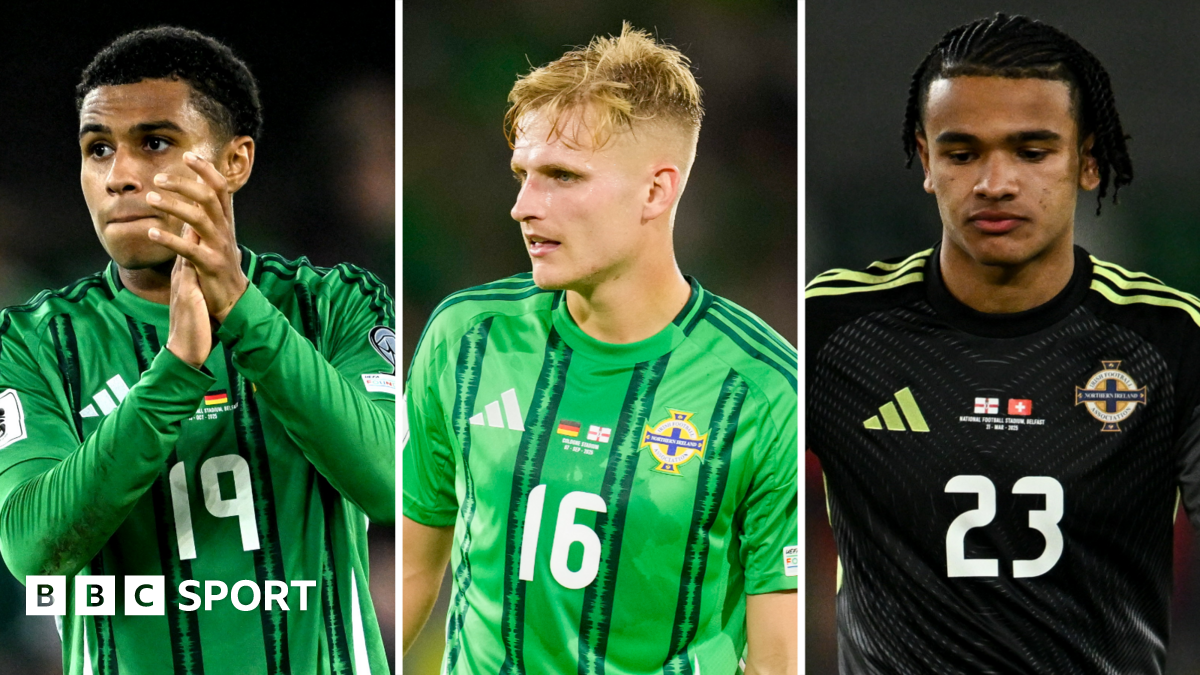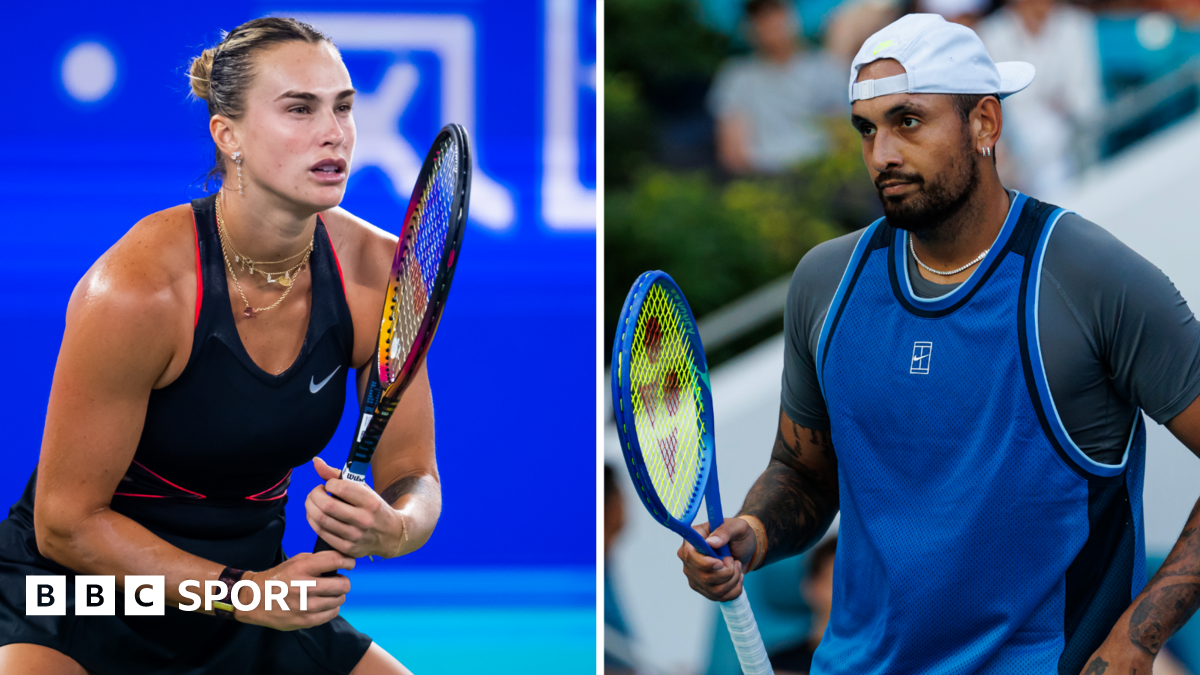'It's about identity' - how Athletic Club's unique player policy drives success
ByElizabeth ConwaySpanish football reporter and Jonathan RawcliffeBBC Sport assistant producer
In Bilbao, the largest city in the Basque region of Spain, football is not just a game - it is a way of life.
"Even the people who don't care about football in Bilbao, care about Athletic," says local journalist Benat Gutierrez - his words echoing the sentiment of an entire city.
For Athletic Club, otherwise known as Athletic Bilbao, identity matters just as much as trophies - and perhaps even more.
BBC Sport travelled to the city to speak to those who know the club best, and find out how they are able to remain competitive in top-flight football with a unique player recruitment policy.
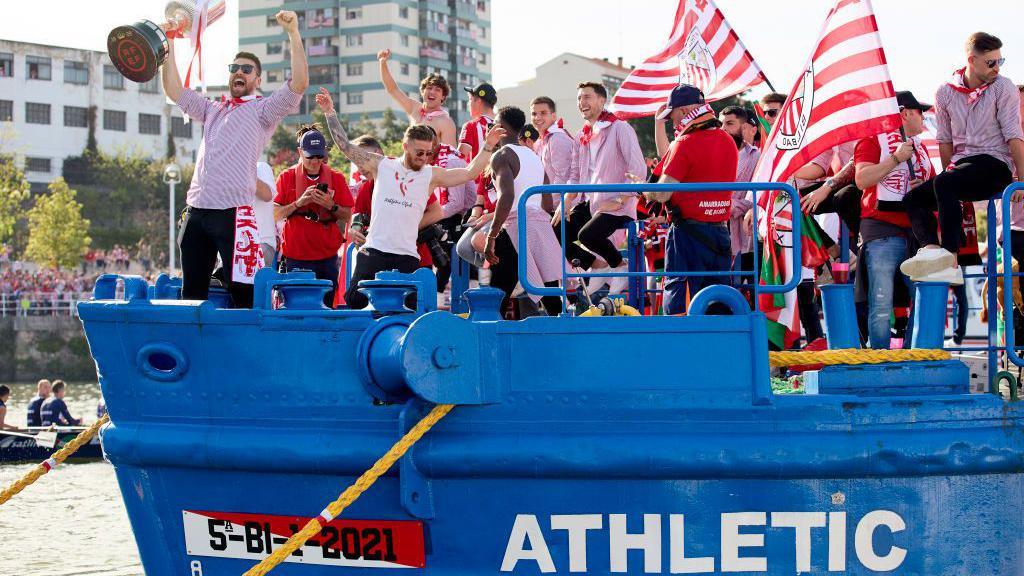 Image source, Getty Images
Image source, Getty Images
Athletic celebrated winning the Copa del Rey on their barge 'La Gabarra' by sailing down the Nervion river, which passes through the centre of Bilbao
A club like no other
With eight La Liga titles and 24 Copas del Rey, Athletic - who face Newcastle in the Champions League on Wednesday - are the third-most successful club in Spain in terms of domestic honours.
Along with Real Madrid and Barcelona, they have never been relegated from the top division of Spanish football since its foundation in 1929.
But what truly sets them apart is not their silverware, but their unwavering commitment to a unique philosophy - they only field players who are Basque-born or developed in the Basque Country.
"It's not just about the football," says lifelong fan Gaizka Atxa. "It's about the sense of community and belonging."
This philosophy has made Athletic a global anomaly.
"It's the only club in the world that plays solely with local players from the region," says journalist Janire Fragua.
"There is a team in Mexico - Chivas de Guadalajara - who only field Mexicans, but here the decision to only field players from the region was made many years ago and that's what truly defines this philosophy."
What are the eligibility rules?
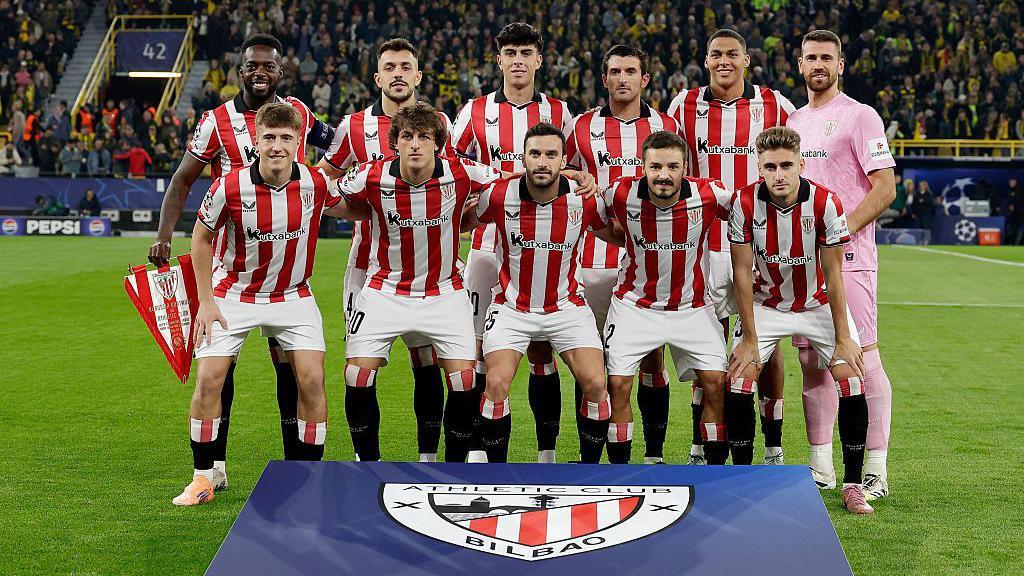 Image source, Getty Images
Image source, Getty Images
The policy of fielding players who were born or brought up in the Basque Country was introduced in 1912
In place since 1912, the rule - known as the 'Cantera' policy - only applies to players, with members of the club's staff being permitted to be employed without being from or linked to the Basque Country.
The club's website states that "Athletic Club may only field players who have come through its own academy or the academies of the other clubs in the Basque Country, or players who were born in the following territories which constitute the Basque Country: Biscay, Gipuzkoa, Alava, Navarre, Labourd, Soule and Lower Navarre".
This policy is also adhered to by the club's women's team.
"The nature of the policy means most of the fans will have a direct connection with one of the players," Atxa says.
"It's very common to hear people say that their sister went to the same university as [goalkeeper] Unai Simon or that their brother's neighbour built [forward] Inaki Williams' house.
"We feel very connected with our players and that's really what creates that special bond."
The secret to recent success
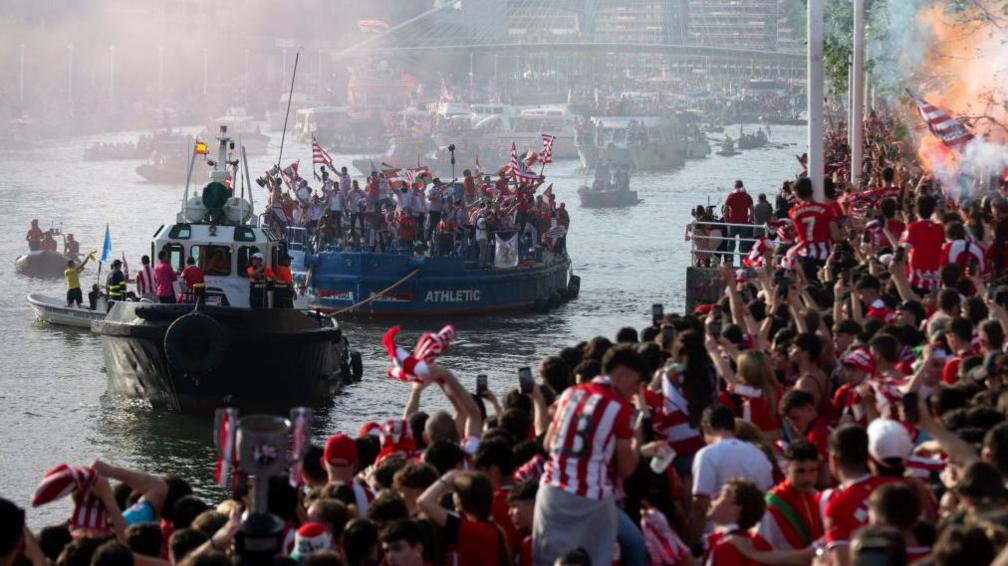 Image source, Getty Images
Image source, Getty Images
Athletic celebrated winning a 24th Copa del Rey in 2024 - their first since 1984
Despite their strict recruitment policy, Athletic continue to compete at the highest level.
In 2024 they ended a run of six successive Copa del Rey final defeats to win their first silverware in 40 years, beating Mallorca in a penalty shootout.
"The joy that the city had when we won the cup was indescribable," Atxa says.
"The players came out on a barge on the river and over a million people came out on to the streets to party.
"It was very emotional to see that many people celebrating a big success after 40 years. Despite our model, it showed that we can compete with the best."
"If they wanted to do a census, that was the day!" journalist Gutierrez adds.
The momentum at the club continued the following season when they finished fourth in La Liga to qualify for the Champions League after an 11-year absence.
"It's a huge achievement and it's harder and harder to qualify every year," Gutierrez says.
"It's also important for the economy of the club. When you're trying to retain players like Nico Williams, who is obviously very expensive, you need to regularly be in European competition."
Is the policy sustainable?
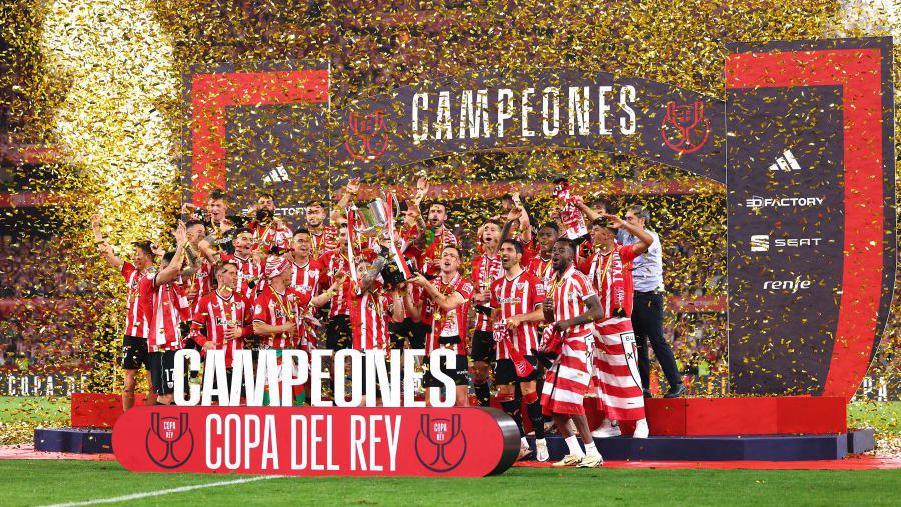 Image source, Getty Images
Image source, Getty Images
Only Barcelona (31) have won the Copa del Rey more times than Athletic (24)
"We know our philosophy is restrictive but we invest heavily in youth," says Mikel Gonzalez, Athletic's director of football.
"We have more than 180 grassroots clubs in the Basque region. We're always nearby, offering education, technology, and support."
The system is built on long-term relationships with local clubs, families and communities, and as fan Aitor Salinas-Armendariz explains, it is a two-way relationship.
"Athletic provides economic and technical support, and in exchange they can recruit the best players coming out of these small clubs," he says.
Gutierrez argues the policy fosters stronger team bonds, which in turn enhances performance.
"It allows you to have a more cohesive team because you cannot go crazy in the market. You cannot just sell 10 players and get 10 new players in between seasons," he says.
"You get players who share life experiences because maybe they've played together before, maybe they are from the same city, maybe they were on different Basque teams and have been playing against each other since they were younger. That doesn't happen in many clubs."
Fragua believes the shared culture and bond within the team "makes up for any lack of quality or flair with the ball".
"It brings out an identity and a competitiveness which I truly believe only comes from that unity in the dressing room and the feeling of belonging to the same thing, the same land, the same culture," she adds.
A model under pressure?
So how does a club with such self-imposed limits stay competitive?
"That's the challenge," says fan Atxa. "Trying to remain competitive while staying true to your history, your traditions, your values."
Since the club's foundation 127 years ago football has changed immensely - but Athletic have resisted those changes.
"There were times when results weren't so good and the social debate opened up about the philosophy, whether to sign foreign players or keep relying on homegrown talent. That debate has never led to change," Fragua says.
"We win two games and people forget about it! Obviously fans want us to win and to be a success - but it's beyond that. It's something about keeping the identity.
"It means more to stay true to the club's values and identity rather than winning two or three more games every season."
Fans of the club agree.
"We are convinced this is the model that has withstood the test of time," Atxa says.
"We are convinced that we can compete in this manner and there are going to be good seasons and bad seasons, but we are still going to be competing in top-flight La Liga for years to come."
"Being the odd one out in football is going to grant Athletic a spot in the global football scene," says Gutierrez.
In a football world increasingly driven by huge global transfers, Athletic Club remain defiantly local - and proudly so.
What some might see as a limitation, Athletic Club see as strength.
For them, success is not just measured in trophies, but in the identity shared, the values upheld, and the generations of players who wear the red and white shirt - not just as footballers, but as one of their own.

 5 hours ago
3
5 hours ago
3







